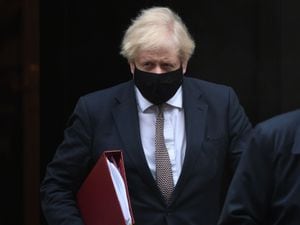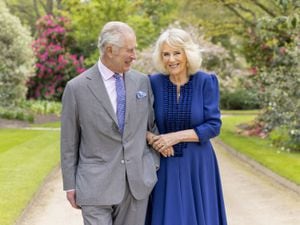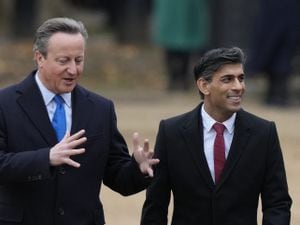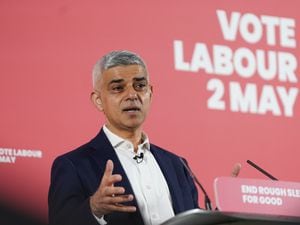Government survives Tory rebellion to defeat genocide clause in Trade Bill
Conservative former ministers Nus Ghani and Sir Iain Duncan Smith led the bid to support the Lords amendment.

Boris Johnson suffered a major Commons rebellion as Tory rebels narrowly failed in their bid to outlaw trade deals with countries that are committing genocide.
The Prime Minister’s working majority of 87 dwindled to just 11 as MPs voted to reverse an amendment to the Trade Bill made by the House of Lords by 319 votes to 308.
The change made by peers would have forced ministers to withdraw from any free trade agreement with any country which the High Court rules is committing genocide.
A total of 33 Conservative MPs rebelled by voting to retain the Lords amendment in the Bill, led by former ministers Nus Ghani and Sir Iain Duncan Smith.

They also tabled an amendment which they believed retained the thrust of proposals introduced by peers while easing Government concerns, including about the role of the courts in trade deals, although this was not pushed to a vote.
The Government did not appear to aid its cause to dampen the rebellion when trade minister Greg Hands admitted he had not read the compromise proposal tabled by Tory colleagues.
After the vote, Tory former leader Sir Iain said MPs would continue to work on proposals – with further amendments expected to emerge when the Bill returns to the Lords.
He wrote on Twitter: “Today’s rebellion shows the Govt can’t ignore calls to bring genocide cases before UK courts. We’ll continue to work on this amendment, considering all points MPs made today.
“I hope the @UKHouseofLords will ensure an improved amendment returns to the @HouseofCommons.”
He added: “The wilful ignorance of alleged genocide and grave human rights abuses in China and elsewhere must stop, we will not sell out our values for trade deals with genocidal states.”
During the debate, Sir Iain warned that the persecution of Uighur Muslims in China “has all the hallmarks of a genocide”, but insisted a UK court should make that call.
Ms Ghani wrote on Twitter: “Solid result for the genocide amendment and the numbers will embolden House of Lords to adopt the revised Ghani amendment.
“Clear message from @HouseofCommons that we will not be bystanders to genocide.”
Conservative former minister Tobias Ellwood said he was saddened at having to rebel in order to encourage the Government to “take the moral high ground”.
He said: “For too long, the West has bit its tongue as China ignored international trade laws, exercised human rights abuses, while the West still hoped that it would mature into a responsible international citizen.”
On why the Government did not support the amendment, Mr Hands said the Government would act before a country reached a situation where it could be accused of genocide.
Concluding the debate, he told the Commons: “I don’t think it would be right for the UK Government to wait for a human rights situation in a country to reach the level of genocide – which is the most egregious international crime – before halting free trade agreement negotiations.
“Any responsible government would have acted before then.”
He also voiced concerns about the prospect of the amendment allowing the High Court to “frustrate, even revoke trade agreements” entered into by the Government.
Mr Hands noted the Government is “open for further discussions on these matters” and has “no plans” to do a trade deal with China.
A total of 10 Conservative MPs also rebelled to support a separate Lords amendment aimed at giving Parliament a bigger say in the approval of post-Brexit trade agreements.

They included former ministers Tracey Crouch, David Davis and Jonathan Djanogly.
But MPs voted by 353 votes to 277 – majority 76 – to remove this Lords amendment from the Bill.
MPs also voted to strip out several other Lords amendments, including one seeking safeguards for the NHS and another for a code of practice to be established to maintain standards on food, animal welfare, the environment, human rights and labour law.
The Bill is currently in the parliamentary stage known as “ping pong” in which legislation moves between the Commons and Lords until agreement can be reached on its wording.





